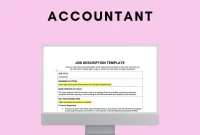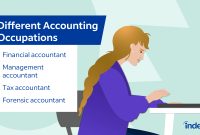Navigating the world of taxes can be daunting for self-employed individuals and freelancers. Unlike traditional employees, who have their taxes withheld by employers, self-employed individuals must manage their own tax obligations. Understanding the basics and knowing when to seek professional help can make the process smoother and more efficient. Here’s a comprehensive guide to help you tackle tax filing with confidence.
Understanding Your Tax Obligations
As a self-employed person or freelancer, you’re responsible for paying both income tax and self-employment tax. The self-employment tax covers Social Security and Medicare contributions that would typically be handled by an employer. It’s crucial to set aside a portion of your income throughout the year to cover these taxes, ideally around 25-30% of your earnings.
Estimated Taxes
Instead of paying taxes once a year, the IRS requires freelancers to make quarterly estimated tax payments. This system helps you avoid a large tax bill at the end of the year and potential penalties for underpayment. Use IRS Form 1040-ES to calculate your estimated taxes and ensure timely payments.
Deductions and Credits
One of the benefits of being self-employed is the ability to claim various deductions and credits. Common deductions include home office expenses, travel costs, and equipment purchases. Keeping detailed records and receipts will help maximize your deductions and reduce your taxable income.
Home Office Deduction
If you use a portion of your home exclusively for business, you may qualify for a home office deduction. This deduction can cover expenses like mortgage interest, utilities, and repairs. The simplified option allows you to deduct $5 per square foot of home office space, up to 300 square feet.
Seeking Professional Help
While many freelancers handle their taxes independently, hiring an accountant can offer significant advantages. An accountant with experience in accounting for freelancers can ensure you’re taking full advantage of deductions, help with complex tax situations, and provide peace of mind. To find “accountants for self-employed near me,” start by asking for recommendations from fellow freelancers or using online directories.
Benefits of Hiring an Accountant
- Expert Guidance: Accountants can offer insights into tax laws and changes that may affect your situation.
- Time Savings: Handling taxes can be time-consuming, and an accountant can free you up to focus on your business.
- Error Reduction: Professional accountants can minimize errors and reduce the risk of audits.
Conclusion
Filing taxes as a self-employed individual or freelancer doesn’t have to be stressful. By understanding your obligations, taking advantage of deductions, and seeking professional help when needed, you can manage your tax responsibilities effectively. With the right approach, you’ll ensure compliance and maximize your financial well-being.
For personalized advice, consider reaching out to an accountant familiar with self-employed tax needs. Their expertise can make a world of difference in navigating the complexities of tax filing.



